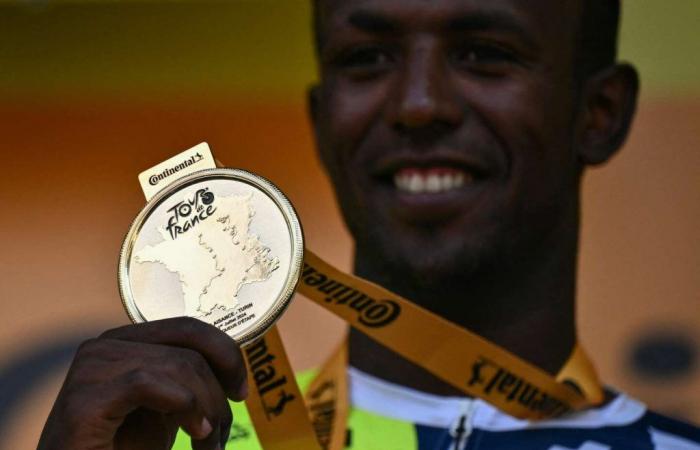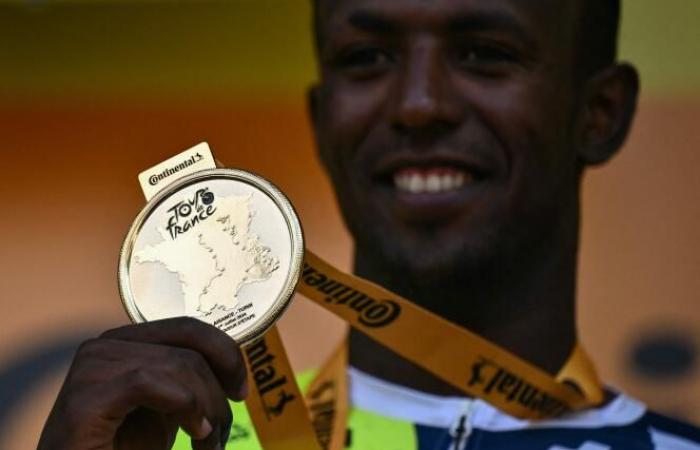It was a treasure of a cyclist, with fine shoulders and spirit, and formidable speed, who won on Monday 1is July in the third stage of the Tour de France, over 230 kilometers between Piacenza and Turin, Italy. Eritrean Biniam Girmay is a formidable finisher. “To succeed in a sprint, you have to close your eyes and throw yourself into the fray”jokes the winner of the day, member of the Belgian Intermarché-Wanty team. “Apparently I closed the right eye!”adds the 24-year-old rider who had already won a stage of the Giro d’Italia in 2022, and then injured his eyeball while uncorking champagne.
Read also | Tour de France 2024: Biniam Girmay’s victory summary in stage 3
Add to your selections
The date is historic. The Tour de France welcomes its first black African stage winner in 111 editions, also the day when the first Ecuadorian wears the yellow jersey, in the person of Richard Carapaz (Education First). Two white African riders had already won stages: Robert Hunter in 2007, Daryl Impey in 2019.
Girmay also breaks a stubborn glass ceiling: “To be the “The first black African winner is a message for the whole continent.” And the promise of a party on his return to Asmara, on the high plateaus at an altitude of 2,300 metres, in the capital of his country, one of the few nations in the world where cycling is king. Under clouds of confetti, Biniam Girmay had already paraded in a limousine after his victory in the Giro d’Italia, like Neil Armstrong in the parade in New York in 1969, after his return from the Moon.
But behind these celebrations, the problem of the integration of African riders into the peloton continues to arise, very late and slow, thwarted by obstacles, traps and false good news. “I have nothing against Biniam Girmay, but there are about thirty runners like him in Eritrea or Ethiopiacomments a coach who wishes to remain anonymous, having officiated at the World Cycling Centre (WCC), the academy of the International Cycling Union (UCI) reserved for young talents from emerging countries. Where are these runners today? We have been unable to detect them and trace a path for them.”
A respected passport
Daniel Teklehaimanot, forever the first in this odyssey, had already tried to raise awareness of this situation. The Eritrean, the first black African to start the Tour de France in 2015 – alongside his compatriot Merhawi Kudus – and the first to wear the polka-dot jersey of best climber, was keen to remind us: “There are lots of runners behind me.” This is how Teklehaimanot chose to sacrifice himself during an African championship, in the Casablanca region (Morocco), in 2016, for his training partner Tesfom Okubamariam. “He didn’t have the luck I had of being spotted one day”, Teklehaimanot regretted. Okubamariam should have had a European experience in 2013, but the Swiss government had refused him a visa.
You have 59.93% of this article left to read. The rest is reserved for subscribers.







